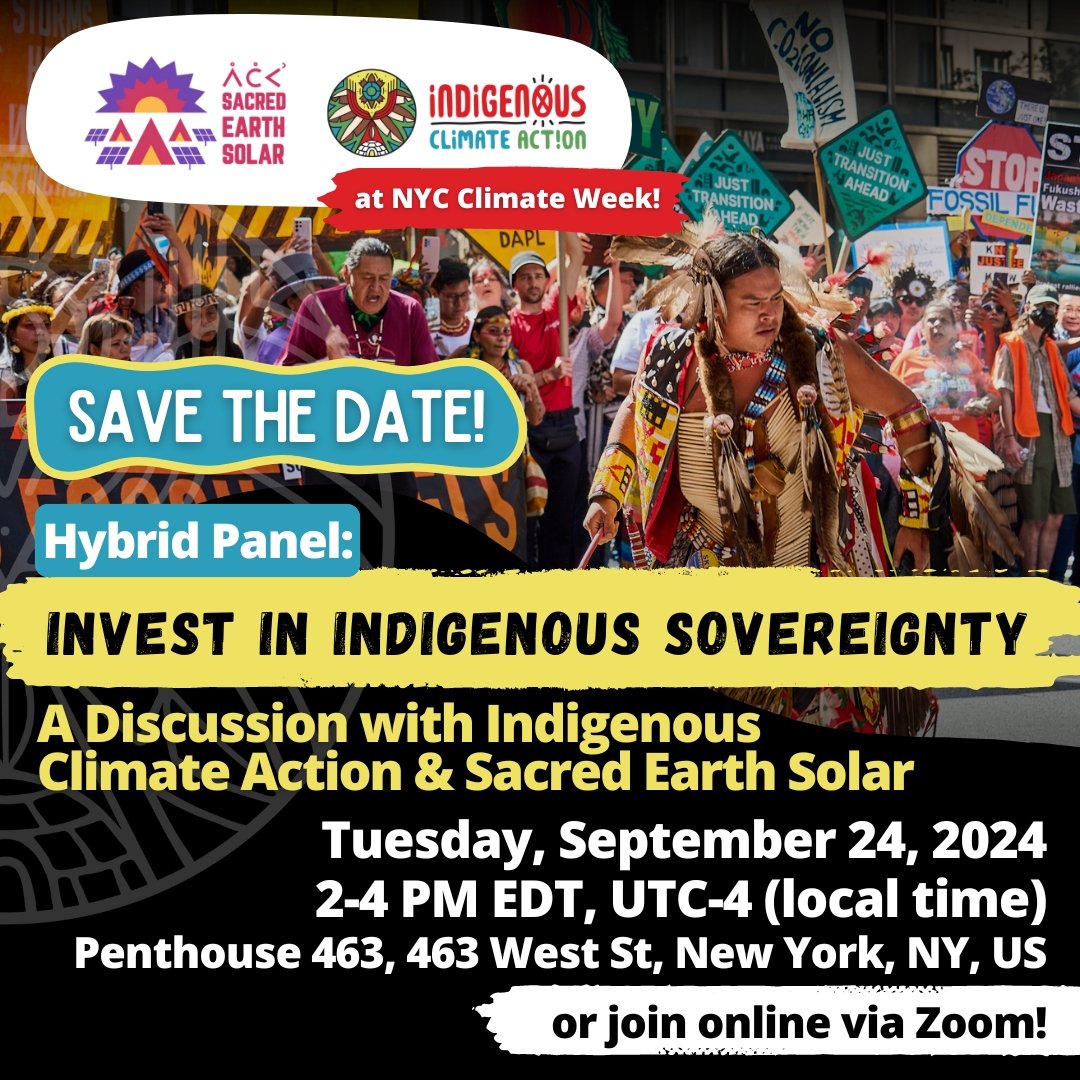
Indigenous Divestment
What is Divestment?
Divestment is the opposite of investment. It is the process of taking out funds from a coalition, business, assets, or projects. For example, a fossil fuel company, or companies forcefully remove and evict Indigenous peoples’ from their homes, lands or territories without free, prior, and informed consent. This is considered to be a violation of Indigenous peoples' human rights and will lead to the project's divestment from banks, partnerships, and or sponsorships of any such harmful project.
NEW REPORT
Healing the Land: Indigenous Perspectives on Divestment
Indigenous Divestment: Why now?
Before and since our inception, founders and members of ICA have been involved in campaigns that call for the divestment from fossil fuel projects, supporting numerous ENGOs in efforts to target some of the world’s largest fossil fuel financiers.
The founders of ICA were at the forefront of contemporary Indigenous-led and climate justice divestment campaigns starting in 2009 alongside organizations like UK Tar Sands Network, Indigenous Environmental Network, Rainforest Action Network, Greenpeace, Friends of the Earth, other academic partners, and international partners in the USA, EU, and UK. This early divestment work included lobbying corporations and state leaders nationally and internationally, facilitating and coordinating tours in our homelands, and participating in targeted shareholder campaigns.
In addition to divestment work, the founders of ICA have been long-time advocates and participants in UN mechanisms including the UNFCCC, organizing inside and outside strategies for the recognition of Indigenous rights and knowledge within the historic Paris Agreement. As the world clambers for solutions to the growing climate crisis it is important that we acknowledge the critical role that Indigenous peoples have had in keeping fossil fuels in the ground and advancing the divestment discourse.
Open Letter to RBC
RBC disrespected a delegation of Indigenous, Black, People of Colour and other climate leaders - all with valid proxies from shareholders - by targeting and segregating them away from the main AGM meeting room on April 5, 2023. RBC's use of a reserve system, based on colour-coded passes, resulted in clear discrimination towards this delegation of BIPOC and other climate leaders.
You can read the open letter here.
How is ICA involved in Divestment Campaigns now?
Indigenous Climate Action is engaged in divestment campaigns across the globe that support Indigenous peoples' rights, Indigenous peoples' lands, and territories. To ensure that ICA’s Divestment Program is moving in the right direction, we have been meeting with Indigenous divestment knowledge holders who want the same outcome as ICA, creating a framework of past, present, and future divestment movements and campaigns that are Indigenous centred, led and implemented. To build such a framework, ICA is actively searching for an Indigenous researcher who can assist us in writing the script on Indigenous Divestment Framework in so-called Canada.
ICA is currently exploring partnerships with organizations, communities and allies in deepening Indigenous-led Divestment and keep it in the ground strategies to develop and curate best practices for community led and driven divestment movements. We will be hosting webinars, trainings and providing opportunities for community participation in an Indigenous-led Divestment movement.
“As an Indigenous person, this fight is very important to me. It is especially crucial right now as we are witnessing climate catastrophes all around us. The land and water I hold most dear to me are threatened by a tar sands oil pipeline. Without insurance companies and banks backing this pipeline like many other industrial projects, it would not exist. For this reason, I dedicate much of my time to divestment. I believe Indigenous peoples should lead this fight because we have known how to care for the land and water since time immemorial. And once divestment from fossil fuel projects is achieved, moving forward, it is essential to hold companies accountable to adopt policies to respect Indigenous rights and uphold FPIC. This work enables transformative change that uplifts the knowledges, interests and rights of Indigenous communities and Nations. “
- Kayah George
Divestment from an Indigenous Perspective Webinar
Learn why it's vital to know where your money is going once it's in the bank, and if your dollars are helping to fund climate disasters and violate Indigenous rights. Most importantly, learn how to take action if they are.
Moderator: Kayah George Panelists: Eriel Deranger (Athabasca Chipewyan), Matt Remle (Hunkpapa Lakota), and Charlene Aleck (Tsleil-Waututh)








